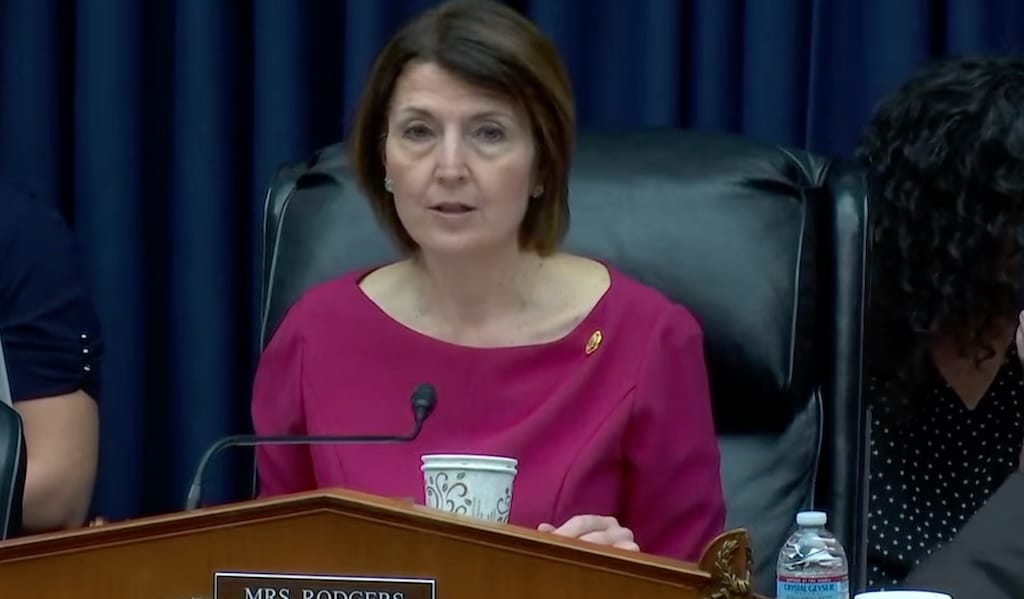
Communications Security
The bills deal with network security and studying 6G technology.

 Screenshot of House Energy and Commerce Committee Chair Cathy McMorris Rodgers, R-Washington, at the markup session Wednesday
Screenshot of House Energy and Commerce Committee Chair Cathy McMorris Rodgers, R-Washington, at the markup session Wednesday
WASHINGTON, March 20, 2024 – The House Energy and Commerce Committee advanced four pieces of communications legislation on Wednesday.
Three of the bills are network security measures targeting companies from China and other countries deemed national security threats, and one would direct the Federal Communications Commission to stand up a task force to study 6G technology. The bills were passed unanimously with bipartisan support.

“Taken together, these bills will help protect American networks from security threats, while also allowing our country to remain a global leader in communications technology,” said Ranking Member Frank Pallone, D-New Jersey.
The bills now head to the full House for consideration.
Countering CCP Drones Act – H.R. 2864
The Countering CCP Drones Act, led by Rep. Elise Stefanik, R-New York, would add the Chinese drone company Da-Jiang Innovations to the FCC’s covered list, effectively banning both DJI hardware and software from operating American networks.
Rep. August Pfluger, R-Texas, pushed for the amendment to extend the ban to software, he said at the Communications and Technology Subcommittee’s markup session on March 12.
DJI is a popular drone manufacturer, comprising over 70 percent of the global market.
The FCC’s covered list was stood up by the 2019 Secure and Trusted Communications Network Act and currently serves to block equipment certain from Chinese manufacturers like Huawei and ZTE from American networks.
Congress has still been unable to find the $3 billion necessary to fully fund the FCC’s rip and replace program, which reimburses providers for swapping out their noncompliant equipment.
Foreign Adversary Communications Transparency Act – H.R. 820
Also led by Stefanik, the Foreign Adversary Communications Transparency Act would require the FCC to publish and annually update a list of its license and authorization holders that have ties to China, Iran, North Korea, or Russia.
The bill would also direct the agency to start a rulemaking process aimed at collecting that information.

Senator Marco Rubio, R-Florida, introduced a companion bill in the Senate which has yet to clear the chamber’s commerce committee.
Future Uses of Technology Upholding Reliable and Enhanced Networks Act – H.R. 1513
The FUTURE Networks Act would direct the FCC to stand up a “6G task force,” which would advise the agency on the standard development process and potential uses and risks of the technology. It’s an attempt to maintain U.S. leadership in the wireless communications space, lawmakers said at the March 12 markup session.
FCC Chairwoman Jessica Rosenworcel would be tasked with appointing members from industry, public interest groups, and government agencies to the task force within 120 days of the bill becoming law. The group would issue a draft of its first report within 180 days of its establishment.
Removing Our Unsecure Technologies to Ensure Reliability and Security Act – H.R. 7589
The ROUTERS Act would direct the Commerce Department’s National Telecommunications and Information Administration to study the national security risks of routers and modems produced by companies with ties to the same adversarial governments as H.R. 820.
The results of the study would have to be submitted to Congress within a year of the bill’s enactment.


